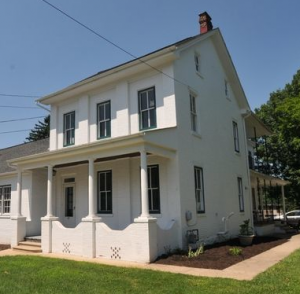 They say it’s impolite to speak ill of the dead, and the often decorous John Updike probably wouldn’t have had anything negative to say about the recent death of E.L. Doctorow. But Updike is no longer among us and Bruce Weber, writing for The New York Times, quoted Updike’s comparatively nasty assessment of Doctorow’s historical novels in the obituary “E.L. Doctorow Dies at 84; Literary Time Traveler Stirred Past Into Fiction”:
They say it’s impolite to speak ill of the dead, and the often decorous John Updike probably wouldn’t have had anything negative to say about the recent death of E.L. Doctorow. But Updike is no longer among us and Bruce Weber, writing for The New York Times, quoted Updike’s comparatively nasty assessment of Doctorow’s historical novels in the obituary “E.L. Doctorow Dies at 84; Literary Time Traveler Stirred Past Into Fiction”:
“Perhaps the most telling review came from John Updike, who was prominent among a noisy minority of critics who generally found Mr. Doctorow’s tinkering with history misleading if not an outright violation of the tenets of narrative literature. Updike held Ragtime in especial disdain.
“’It smacked of playing with helpless dead puppets, and turned the historical novel into a gravity-free, faintly sadistic game,’ he wrote in The New Yorker, going on to dismiss several other Doctorow books before granting their author a reprieve.
“’His splendid new novel, The March, pretty well cures my Doctorow problem,’ Updike wrote, adding, ‘The novel shares with Ragtime a texture of terse episodes and dialogue shorn, in avant-garde fashion, of quotation marks, but has little of the older book’s distancing jazz, its impudent, mocking shuffle of facts; it celebrates its epic war with the stirring music of a brass marching band heard from afar, then loud and up close, and finally receding over the horizon.
“’Reading historical fiction,’ Updike went on, ‘we often itch, our curiosity piqued, to consult a book of straight history, to get to the facts without the fiction. But The March stimulates little such itch; it offers an illumination, fitful and flickering, of a historic upheaval that only fiction could provide. Doctorow here appears not so much a reconstructor of history as a visionary who seeks in time past occasions for poetry.'”






